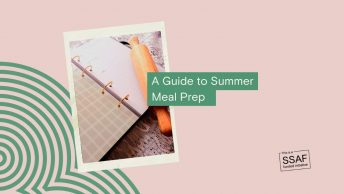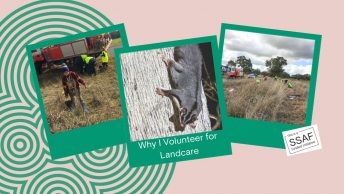This post is over three years old, the information may be outdated.
If money worries are becoming a regular drain on your energy, then this post could make a big difference to your experience as a student at CSU. With a bit of planning, knowing where to go to get help if you are having money issues, and learning how to manage both the cost of study and the cost of living, you can get on top of your finances and focus on your study.
1. Figure out the actual cost of study each semester. Look at each subject individually and write down the extras that you need to fork out for over the semester. Things like field trips, equipment and textbooks can impact your weekly cash flow if you don’t plan for them. Look at what you need to pay for per semester and create a budget. CSU offers online finance workshops which are worth checking out.
2. Sharing a house can be one of the best parts of student life, but sorting out the household finances can be somewhat tricky to navigate. Start the money conversation early and communicate clearly and regularly with all household members. Agreements about whose name appears on utility bills and rental agreements and how much housemates contribute each week should be sorted out before you move in. Split the responsibilities equitably and if possible have all names on all bills and agreements.
3. Life happens and unexpected expenses can seriously drain your bank account to the point that it is hovering on empty….don’t panic. CSU offers emergency cash grants, loans and $60 food vouchers so you can focus on getting back on track and not on how you are going to feed yourself this week. You will need to get in touch with a Student Liaison Officer (Finance) who will help you navigate options to sort out your financial situation and support you planning your finances going forward.
4. It’s far too easy to accrue debt and not even realise it…. That library book that you have looked everywhere for, your student admin fees that you totally forgot to defer and now you can’t access your records. Take five minutes and take stock. Send an email to a Student Liaison Officer (Finance) that outlines your situation, how much you owe, and a timeline of when you can pay out the debt. They will assist you in setting up a payment plan and get you back on track.
5. Plan ahead for workplace learning. Many courses require substantial periods of workplace learning that can require you to travel quite extensively, incur extra accommodation and equipment costs, and mean lost work time if you depend on a part-time job to fund your living expenses while you study. The key to effectively managing your finances when factoring workplace learning is to research costs early and plan for the worst-case scenario budget wise so that you can manage financially no matter where you end up on placement.
Managing your money and a full study load can be a challenge, but good financial management skills will be of benefit long after you graduate.
Are you starting your course in Session 3? Join a Financial Skills Workshop during Orientation to learn how to take control of your money and reduce your financial stress while getting through your studies.
1pm, Wednesday 7 November 2018 – Plan your workplace learning budget
If you can’t make the Orientation session, these workshops will also be offered later in the session:
1pm, Monday 26 November 2018 – Make a study spending plan
1pm, Wednesday 28 November 2018 – Plan your workplace learning budget










